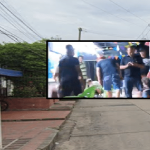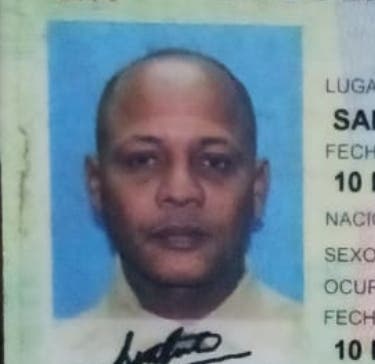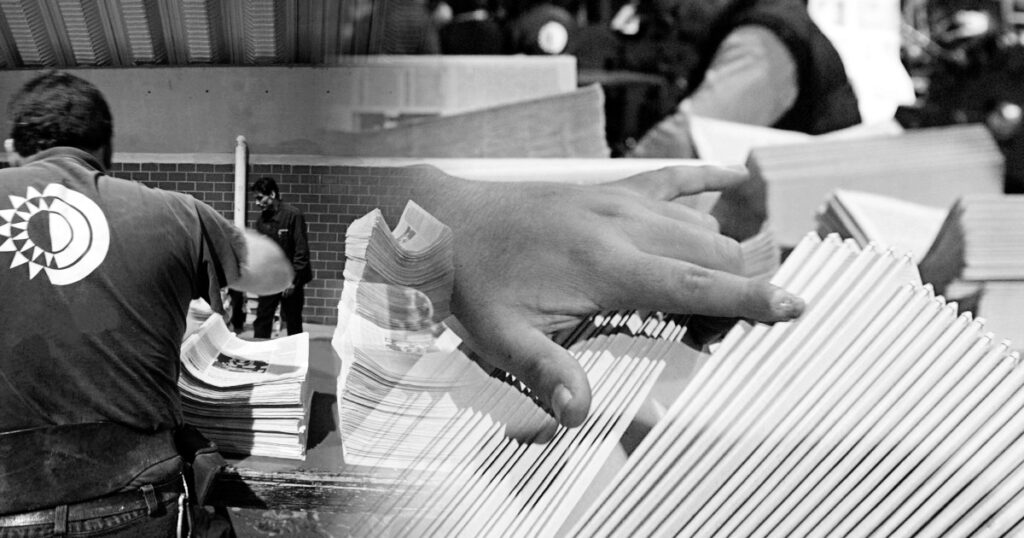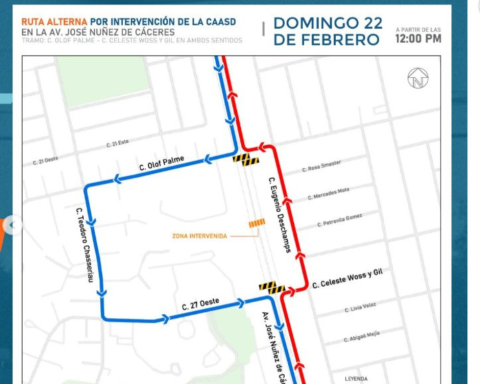The Mexican editor analyzed the situation focused on the tense relationship between Mexico and Peru. Likewise, he regretted AMLO’s constant attacks on the government of Dina Boluarte. “I am very sorry for Mexico’s aggression against Peru, because I consider it so, not only against the president of Peru, against Congress, against the constitutional order.”
The Mexican historian and essayist Enrique Krauze analyzes in the LR+ program ‘Cu4tro D’ the position of the Mexican president towards Peru, the ex-president Pedro Castillo and the political crisis unleashed in the country since it attempted a frustrated self-coup, closing the Congress and other public institutions.
Do you have any particular explanation for the intense affection of President Manuel López Obrador for Pedro Castillo since he was elected and later, when he got into trouble? Is this a special case or is it an affection that López Obrador is extending to other first leaders?
I think it’s psychiatrists who would have a deeper opinion on this and I’m not being ironic, because in MexicoUnfortunately, the concentration of power (is) in the hands of the Presidency, for many centuries, but unfortunately, now again, it has led to psychology, and I would say the psychopathology of presidents, being translated into national politics. But I’m going to give you other quick explanations.
One is that the president of Mexico has neither a republican nor a democratic idea of political life. He has a literally imperial idea, and I would say almost mystical, from the place of a president: it is like the medieval king who is anointed by the people and receives the will of the divine mandate. Somehow, the president is anointed by God and by the people. For the president of Mexico, Fidel Castro had that characteristic, Hugo Chávez had that characteristic and, of course, Pedro Castillo has that feature. The fact that the Peruvian Congress has also been elected by the citizens seems minor to him.
Position. AMLO wanted to project his image in Castillo. Photo: Andean
The idea of a Power of attorney, a Legislative Power, seems to him something he does not understand; what he understands is the power concentrated in the divine person of the president, and he transferred that conception to Pedro Castillo. That is the most benevolent explanation. The other thing is the double standard of being alarmed by the Peruvian situation, but remain silent with the violation of human rights in Cuba, Venezuela and Nicaragua.
Mexico has always had a foreign policy that seemed rational and transcended the individualism of presidents. What has changed?
There was a continuity of many generations of very good Mexican diplomats. With the rise of the Cuban revolution, the position of Mexico is very difficult, It is the neighbor of the United States in very aggressive times, so I have understood the work of Mexico as a balance, even to offer a certain communication link between the Soviet block, Cuba and USA. But in relation to Latin America, since the time of the Mexican revolution, there has always been an attitude of cordiality, of brotherhood, of care for manners. Yes, relations were severed at the time of the Argentine or Chilean dictatorships, but, in general, with Peru it had an excellent relationship that honored our mutual centenary and even millenary history.
What two more related countries between Peru and Mexico. I am very sorry for Mexico’s aggression against Peru, because I consider it so, not only against the president of Peru, against him Congressagainst the constitutional order. I know very well that very difficult times are going through in Peru, because there are many conflicting forces and two different conceptions of what politics is: charismatic and populist politics, and constitutional, civilized, republican politics. But that the president of Mexico has made these statements and has put our countries on the verge of breaking relations, which I hope will not happen, is something very unfortunate…
Many leaders of the left in Peru have compared Mr. Pedro Castillo to Benito Juárez, going so far as to say that what has happened is that we have not had a Mexican revolution. How does that look?
Pedro Castillo has nothing to do with Benito Juarez. I don’t know if Pedro Castillo is an absolutely pure indigenous person. If it is, that is the only similarity it has with Benito Juárez, and having been president of the Republic. Benito Juárez was an indigenous person, pure, yes, but a liberal and a man who had absolute respect for the law, the Constitution, the Legislative Power, the Judicial Power, freedom of the press. He was a typical classic liberal of the 19th century. He was not an indigenist, he was not a populist, he was not religious. He separated the Church from the State. He was President of the Republic, had successive elections, died in the Presidency, defended the country from a foreign occupation. Nothing to see. Fifty years after Benito Juárez, the Mexican revolution occurred.
Indeed, Mexico had an agrarian reform that perhaps Peru should have had much earlier; Mexico had it in the 1930s, and I understand that Velasco had a similar action in the 1970s… I don’t think a revolution was necessary, a social reform and an agrarian reform were necessary. In second place, Mexico had an Institutional Revolutionary Party that Haya de la Torre tried to copy in a certain way with Apra. I don’t know if it is a blessing for Mexico to have had that party, which gave it certain decades of peace, but made us alien to republican and democratic practice. Peru has had a more eventful, more difficult life, with military dictatorships, yes, but also, despite the problems, with freedom of the press, of debate, a Congress, an adjudication.
I think they will come out of this stronger. What it has had, yes, Peru, which is a disgrace, and also Mexico, are presidents who arrive with the popular, legitimate hope and who betray that vote with corruption. But I want to clarify something, López Obrador has a religious aura around him. I called him the “Tropical Messiah”. It was not an insult. I wrote an essay about it, because it was a description: a charismatic leader who sees himself not only as a repository of God’s will for the people, but literally as a redeemer.
He projects that image onto Pedro Castillo and says: there is the redeemer of Peru. That explains his attitude, his redemptive vision of power. Neither Pedro Castillo nor Andrés Manuel López Obrador understand the function of a Legislative Power, a Judicial Power, the importance of freedom and transparent elections. The truth is that no one learns in someone else’s head. I don’t know how long democratic learning will last in our towns.
Peru is a country and a people that I love dearly, and we Mexicans love it so much because it is so close to us, because we are so alike. I don’t know how long it will last, because we have not had anything to do with this Western invention that is democracy for centuries or millennia, and yet there is an important sector of our countries wanting to consolidate democracy, which is nothing other than the power of the majority with respect to the minority and individual freedoms and guarantees and the rule of law. I hope you win this battle, the war is long. We still have a pretty big way of the cross ahead, because the strength of a messianic leader is very great.
Do you feel that the foundations of democracy in Latin America and the United States are weakening? The protests against López Obrador, the positions of President Petro endorsing Pedro Castillo or the presence of Bukele who presents himself as someone sexy, even for democratic sectors. Are we in a deterioration of democracy in the region?
The dreams we had at the end of the 20th century and the beginning of the 21st of the consolidation of democracy were very beautiful but premature. Democracy must always be built. And it is natural that our countries, as a teacher of mine said, were not predestined for democracy, but for the dictatorship, the caudillismo, the monarchism, but not for the democracy and freedom. However, since the 19th century, the elites and little by little the middle classes and intellectual groups have had truly democratic currents.
Democracy in Latin America and in the world is retreating, but at the same time those immense minorities that defend it are strengthening. Even now I believe that they are minorities in Peru, Mexico and many Latin American countries, but they are huge minorities that are going to grow until they become small majorities. We have to be, on the one hand, patient, and on the other, combative and intelligent to show the majority that it is not a question of leaving them devoid of attention, but that dictatorship is the wrong path, that political messianism always betrays and disappoints. Hopefully the extreme of Venezuela, Cuba or Nicaragua does not have to reach our countries for the peoples to realize what freedom means.
I trust that both in Peru and in Mexico, because the minorities are very large and because in Peru there is still a legitimate government, a Congress, an adjudication, freedom of the press; resist, elections are called and the constitutional order is never broken. In Mexico, the constitutional order has not been broken, but freedom of expression is being threatened, and the electoral referee is being threatened by the president, and that is why hundreds of thousands of Mexicans took to the streets to protest.
“We had an uncomfortable liberal democratic position”
I would like to ask you to tell us about your autobiography, about which we have heard wonderful things, which has not arrived in Peru yet and which everyone wants to read, but before that a little spoiler would be very interesting.
Is called spinoza in Parque México, because my grandfather, a Jewish immigrant from Poland, he was talking to me about his favorite philosopher, Spinoza, in the little park Mexico, which is an emblematic place of the city where we walked. He spoke to me about the relationship between ethics and this heterodox Jew who was one of the founders of the best concept of freedom: freedom of belief, freedom of thought, freedom of expression. He was faithful to freedom even though he was excommunicated, but he never joined any creed. He created a universal creed in the 17th century, a kind of religion of humanity.
Around that picture of my grandfather walking with me in Parque México, I remember my life in a long conversation about my work as a historian; my life as an editor with Octavio Paz; the polemics we had with the Marxist left; our criticism of the Central American guerrilla, Shining Path, to the Argentine populisms, but also to the dictators of Brazil, Argentina and Chile. We had an uncomfortable liberal democratic position in the 70s and I attribute it to that preaching of my grandfather. And then I tell the story in that book from my readings of many authors, and after what you have told me, believe me two things, first that I am going to call the attention of the Tusquets publishing house so that the book arrives; and second, I’m going to Peru, I’m going to Lima.
I hope I can be there, no matter how things are, let’s say life is tense, that’s how it is everywhere. I am going to be with you and be able to talk about the book and freedom in Limewhich is a city, and a Peru that, really, sincerely, since the 70s when I visited it for the first time… and I have gone many times because of my friendship with Mario Vargas Llosa, Fernando de Szyszlo, Blanca Varela, among other Peruvian friends, And then to see her again, to be with you again.
The data
Krauze He stresses that democracy is in retreat, but there are huge minorities that defend it and that will grow more and more, until they become small majorities.


















